Inspector E. C. Cooper informs Commissioner of Indian Affairs R. E. Trowbridge that he's inspected tinware samples, like coffee boilers, funnels, cups, and pails that were made by Carlisle Indian School students and finds that they're as good, if not better, than the tinware that the Bureau of Indian Affairs uses. Cooper requests that the…
Industrial Training - Tinsmithing
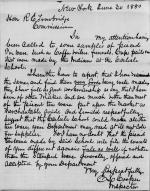
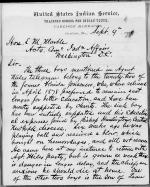
Richard Henry Pratt writes to Acting Commissioner of Indian Affairs E. M. Marble regarding three former Florida prisoners that should be returned home, escorted by Agent Miles. The first is going to die soon because of an accident suffered while playing baseball, and his chiefs want him to die at home. The second is the son of the late Cheyenne…
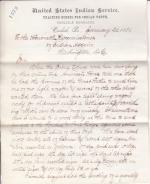
Richard Henry Pratt notes that when he spoke to American Horse and other Sioux Chiefs in 1880 as they returned home they were promised a light wagon produced at Carlisle. According to Pratt sending the wagons along with some tinware would be a good method to show the work being done by the students of the Rosebud and Pine Ridge Agency as well…
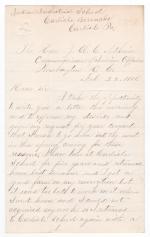
Student William Brown writes to the Office of Indian Affairs asking permission to return to his home on the Pine Ridge Agency in the early spring in order to prepare his farm. Brown also notes that he is engaged to another student from Pine Ridge who attended Carlisle and is ready to start supporting his family. Brown ends by requesting if the…
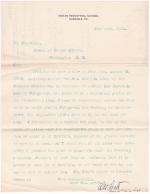
Richard Henry Pratt responds to an Office of Indian Affairs regarding a letter from Henry M. Rice who discusses placing a Mille Lac Nation member in an industrial training program. Rice indicates that Wah-go-osh is quite adept at the tin smith trade but has had no formal training and would greatly benefit both himself and the reservation by…
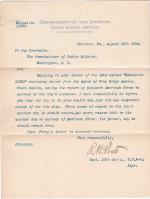
Richard Henry Pratt responds to the request from the agent to return Benjamin American Horse due to his health.
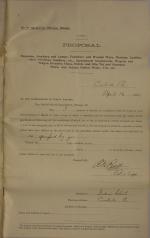
Edgar A. Allen forwards the proposals of the Carlisle Indian School to furnish tinware to the Office of Indian Affairs. Allen notes that the tinware produced by the school is superior to manufactured goods as it is handmade and that he has also sent samples to the office.
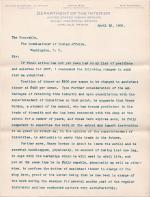
William A. Mercer requests the position of tinner be changed to assistant tinner in order to appoint Henry Gordon to the position when his time as a student expires.
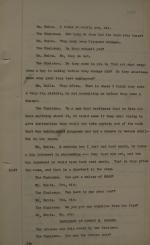
The typed transcript of Robert B. George's testimony before the Joint Commission to Investigate Indian Affairs. At the time he was the tinner at Carlisle.
In his testimony George explains that because students are constantly reassigned in their trade he has never fully trained anyone.
In the published version of this testimony…
